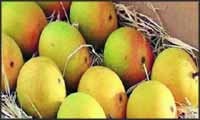
An audit report by the Food and Vertinary Office, an agency of the European Union, has shown that India did take note of quality concerns raised in its export of plant and plant products, and had informed the intergovernmental body last August about the new quality control mechanism to be effective from April 1.
The EU has banned the export of Alphonso mangoes and four vegetables — eggplant, taro plant (colocasia), bitter gourd and snake gourd — from India on grounds that it did not adhere to repeated warnings on quality control.
In its reply to the Food and Vertinary Office (FVO) audit conducted in April, the Indian authorities had submitted an action plan on August 23, 2013, according to the report placed on the website of the EU.
In that reply, Indian authorities said, “The system of official checks has been reviewed and it has been decided to devise a new system of export inspection and certification at the pack house where adequate facilities for inspection, examination/testing, etc. will be available and the produce will be packed under the supervision of plant quarantine official. This system will be put in practice effective April 1, 2014.”
India had also told the EU that as an interim arrangement, an exclusive area for inspection and certification work “has been established at the Mumbai airport from where major export to EU countries takes place”.
The EU, in the last week of March, decided to ban imports citing “significant shortcomings in the phytosanitary certification system”, days before the new system was scheduled to roll out. The decision of the EU’s standing committee on plant health came after 207 consignments of fruits and vegetables from India were found to be contaminated by pests, including fruit flies.
An official told The Indian Express that the EU, despite being aware of the proposal, chose not to wait to see the effectiveness of the new quality control mechanism.
The Agricultural and Processed Food Products Export Development Authority in a notification on March 14, had asked all exporters to route shipments of fresh fruits and vegetables through APEDA-approved pack houses, where it would be monitored by plant quarantine personnel.
The National Plant Protection Organisation had assured the FVO mission during its visit to India in November 2011 and last April, of pest-free exports from April 1 this year.
Pest issues are the real problems. Farmers do not follow eco friendly practices. FSSAI not concentrating on Good Agricultural Practices. End result is loss in foreign exchange.
ReplyDelete